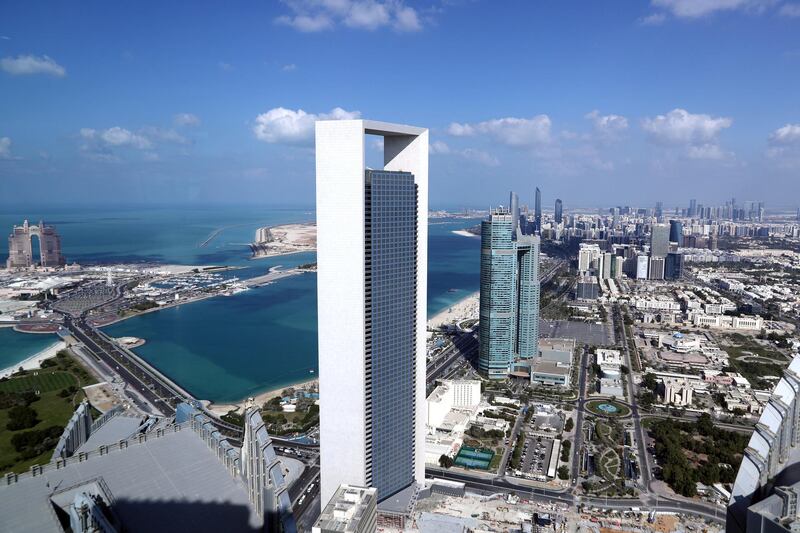The Abu Dhabi National Oil Company will host a virtual roundtable discussion this month that will gather chief executives of global energy companies to discuss the challenges facing the industry in the wake of the coronavirus pandemic.
The Abu Dhabi CEO Roundtable, which will be held on June 16, will allow top executives to discuss some of the most critical issues affecting the energy industry and share best practices that were adopted when responding to the Covid-19 crisis.
“The Abu Dhabi CEO Virtual Roundtable is a great opportunity to share best practices and exchange views, as we continue to meet the health and economic challenges of Covid-19,” Dr Sultan Al Jaber, Minister of State and Adnoc Group chief executive said.
“While we continue to place the highest priority on the safety of our people and business continuity, we are seeing encouraging signs of a rebalancing oil market and the beginnings of economic recovery.”
In addition to Dr Al Jaber, the roundtable will be attended by chief executives of major oil companies including Patrick Pouyanné of Total, Bernard Looney from BP, Claudio Descalzi of Eni and Mukesh Ambani, chairman and managing director of Reliance Industries Limited.
Takayuki Ueda, president and chief executive of Japan’s Inpex, Dai Houliang, chairman of CNPC, Vicki Hollub, president and chief executive of Occidental Petroleum, Vagit Alekperov, president and chief executive of Russia’s Lukoil, among others will also take part.
“The Covid-19 pandemic has virtually brought the world to a standstill and altered entire mankind’s way of functioning in a profound manner,” Mr Ambani, said. “This has impacted every country, every industry, every society, every human in ways never imagined before. The energy industry, which is the lifeblood of the world economy, has done well to navigate the immediate challenges.”
Occidental's Vicki Hollub said she is looking forward to coming away from the discussion with "actionable next steps".
"Occidental is committed to working with Adnoc to continue the safe and efficient production of hydrocarbons to meet the world’s energy needs,” she said.
The discussion will be moderated by energy economist and Pulitzer-Prize winning author Daniel Yergin, who is also the vice-chairman of IHS Markit. He said the meeting would be a valuable chance to identify the challenges and opportunities as the world comes out of the crisis.
"The Covid-19 crisis has put the global oil and industry through a shock of huge dimensions, for which there is no precedent. Through all the turmoil, the industry has, with great creativity and flexibility, continued to deliver on its commitments to people all around the world," he said.
Oil prices have seen wide swings this year, mainly due to the coronavirus pandemic that reduced energy demand while supply of crude remained steady.
A key benchmark, the West Texas Intermediate – a blend of US crude grades – took a dive below zero on April 20, trading at -$40 per barrel at one point as severe mobility restrictions were put in place globally to counter the outbreak of the coronavirus. However, WTI rose above $40 per barrel earlier this week after Opec+, which is an alliance of Opec members and non-members led by Saudi Arabia and Russia, extended a pact to continue cutting production by 9.7 million barrels per day for another month.
“The oil, gas, and petrochemical industries will play an essential role in enabling economies as they begin to reopen by providing reliable, affordable, and sustainable supplies of energy. It is important to find creative ways to partner smartly and balance efficiency with responsible investments to ensure our industry’s resilience as a key enabler of economic growth," Dr Al Jaber said.







